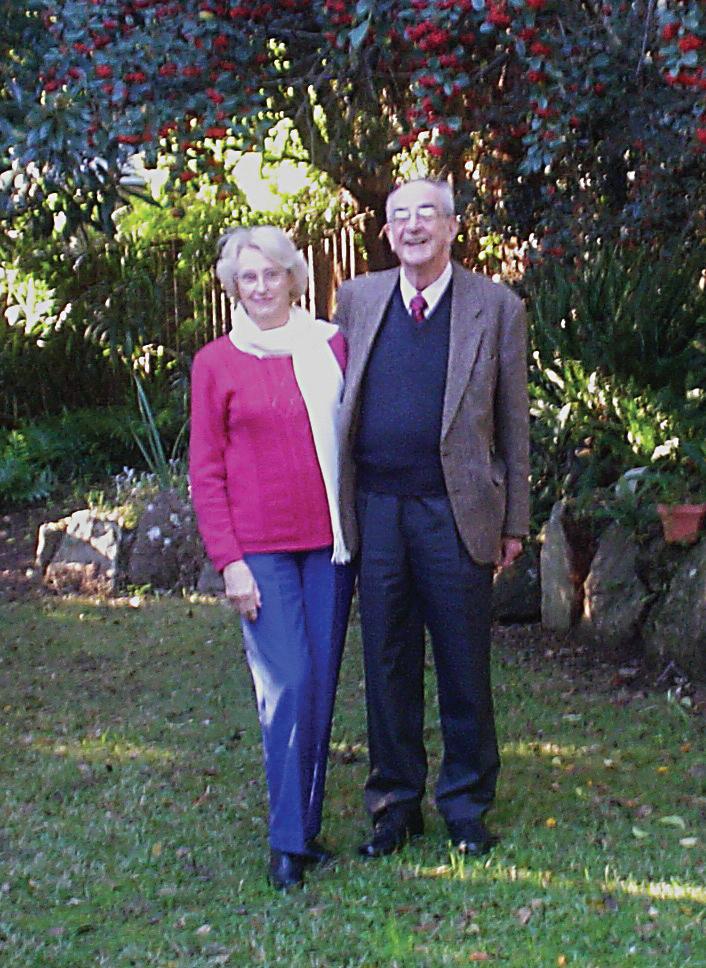
3 minute read
Reward for selfless service
from 2011-07 Melbourne
by Indian Link
Ian Tudor de Mellow, Medal of the Order of Australia (OAM) for service to aged welfare.
BY NOEL G DE SOUZA
Ian Tudor de Mellow was born in Indore of Anglo-Indian parentage; hence the Portuguese name de Mellow (the added “w” was an innovation). His parents were both active in defence during the Second World War. His father Arthur was a high-ranking engineer who was posted to several places (Indore, Dehra Dun, Ajmer, Karachi and Bengal amongst others) to build structures such as the Doon School, prisoner of war camps and airfields. His mother was a Lt-Col in the Women’s Auxiliary Corps.
Prior to coming to Australia, Mr. de Mellow’s entire family history took place in India. His father initially worked with an Indian overseer. Mr. de Mellow recalls that the overseer was also a pundit and drew up an Indian horoscope, which he still possesses.
Mr. de Mellow spent his early school years in diverse places. He was a boarder at the Victoria School, Kurseong and spent his holidays in Kolkata but then when the Japanese began bombing the city, he was moved to the Bishop Cotton School in Simla where Anglican clergymen aimed to mould their pupils in Anglo-Saxon traditions. He still remembers “magical places” in Simla’s surrounds. In 1947 a company of Gurkhas guarded the school during the communal disturbances, in the wake of India’s partition.
Mr. de Mellow’s nostalgic memories of India include cycling around Delhi in 1945. At that time, his uncle Rear Admiral Douglas Cameron was also in Delhi. It would be just over a year later that Delhi would become tormented by communal riots.
Melville de Mellow, the renowned and decorated news broadcaster, was Mr. de Mellow’s uncle. He provided minders to protect his family members during the horrendous riots in Delhi. Mr. de Mellow was sent to his parents in Calcutta. He says that the “die was cast” for his mother, his sister and himself to migrate to Australia. They arrived here in 1948. His father joined them four years later. His parents’ military background enabled them to migrate to Australia under the British Ex-Servicemen’s scheme. Mr. de Mellow attended school at Ballarat College and subsequently in Knox Grammar, Sydney.
The most productive work in which Mr. de Mellow has been involved in recent times has been with SEVA, which is an Indian seniors group
At the age of seventeen Mr. de Mellow volunteered for National Service. This provided him with a varied and tough experience. His commanding officer was a veteran of the British Airborne Division and the Battle of Arnhem. There were other war experienced teachers such as a German who had been in a Hitler Jugend battalion. In the National Service, sports were given top priority; and Mr. de Mellow played rugby, soccer, tennis and squash.
Mr. de Mellow has been very active in retirement. He has been heading the Hornsby Senior’s Advocacy Group. It organised the Live Life Program. For this, the Hornsby Senior Advisory Committee and Hornsby Community Services were awarded the Premier’s Award during Morris Iemma’s tenure.
Mr. de Mellow organises U3A (University of the Third Age) courses for Senior Citizens. He runs courses on military matters for which he brings in his own military experiences and knowledge.
The most productive work in which Mr. de Mellow has been involved in recent times has been with SEVA, which is an Indian seniors group. SEVA’s initial focus was retirement for South Asians. It then moved to organising seminars on health for various Indian groups.
SEVA’s current focus, at the initiative of Mr. de Mellow, is research and development. He is of the belief that good data is needed before suggestions are made and projects launched. It was noted that a good demographic study of South Asians in Australia is lacking. Accordingly, SEVA put up a proposal to undertake this study, in collaboration with Macquarie University with his participation. A research assistant of Nepalese origin has now been appointed to conduct the study. Mr. de Mellow is well qualified for this task. He has a Master’s degree in Transport Economics from Macquarie University and a Doctorate of Management (Economics) from Sydney University.
He is also working on a proposal concerning the under-utilisation and under-employment of technically skilled and professional migrants from South Asia
Another proposal being formulated by Mr. de Mellow concerns the under-utilisation and under-employment of technically skilled and professional migrants from South Asia. Such a study would provide the framework for making concrete proposals and suggestions with regard to tapping the human resources from South Asians countries which already exist in Australia.
Indians and Australians can both be proud that in Mr. de Mellow we have a countryman whose vast and varied experience has now been recognised.









